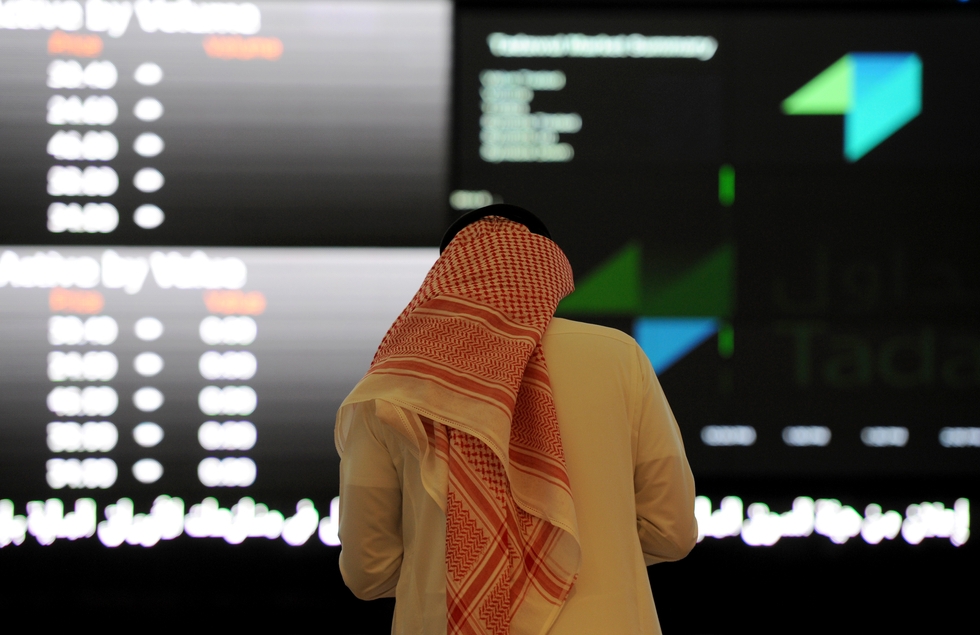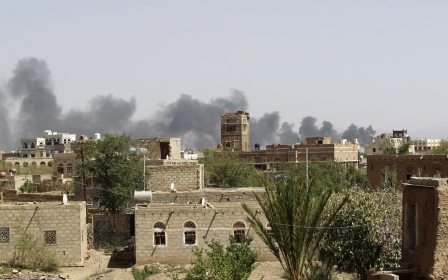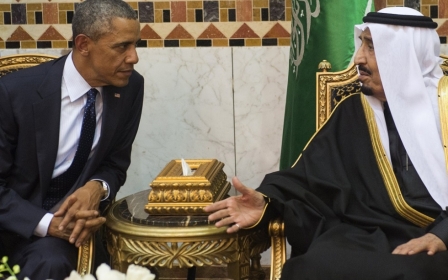Gulf stock markets decline as China fall-off spooks global market

Stocks markets in the Gulf have tumbled following a global equities sell-off in the wake of concerns about China’s economy.
Saudi Arabia’s stock market finished on Sunday nearly 7 percent lower, the biggest fall since December, wiping out around $75bn of market value.
Concerns were amplified by Fitch Ratings’ decision to lower the Kingdom’s outlook from “stable” to “negative.”
Dubai’s stocks also fell by 7 percent, while Doha and Abu Dhabi both fell 5 percent.
In addition, the price of Brent crude fell 3.5 percent to $43.88 per barrel, raising further fears about rising pressure on government spending in the Gulf kingdoms, which are heavily dependent on oil.
“The double-dip in oil prices [after last year’s fall] has made investors worried about the growth prospects for the Gulf Cooperation Council [states], particularly since oil prices are once again below the budget break-even for many countries,” said Simon Kitchen, the head of MENA strategies at investment bank EFG Hermès.
Last week, Saudi Arabian entrepreneur Essam al-Zamel warned that oil prices in the Kingdom might not recover for five or ten years.
"A black economic cloud is covering the skies of Saudi Arabia," he wrote.
Saudi Arabia relies on oil for 90 percent of its fiscal revenues, 80 percent of current account revenues and 40 percent of its Gross Domestic Product.
Analysts have repeatedly warned that the kingdom is not doing enough to diversify its economy, unlike its neighbours in the Gulf, and could face social ruptures in a future as a result.
"Over the past 10 years, expert advice has been ignored. The economic system did not heed it and preferred to sleep on the cushion of the oil boom," tweeted prominent economist Abdulhamid al-Amri last week.
The economies of neighbouring Qatar and the UAE are more diversified - but analysts have warned that they could be vulnerable to a pull-out of Saudi money should Riyadh slump.
The bleak outlook in the Gulf comes as a 9 percent dive in Chinese shares on Monday prompted fears of a potential global economic slowdown.
"Markets are panicking. Things are starting look like the Asian financial crisis in the late 1990s. Speculators are selling assets that seem the most vulnerable," said Takako Masai, head of research at Shinsei Bank in Tokyo, according to Reuters.
At least $5tn has been wiped off the value of global stocks since China devalued the yuan on 11 August, raising concerns about financial instability in the world's second-biggest economy.
The Guardian’s economics editor, Larry Elliott, warned on Monday that the global economy could be experiencing a severe downturn.
“Shares are falling, currency markets are in turmoil,” he wrote. “The price of oil is going through the floor, burning the fingers of speculators who have made the wrong bets on borrowed money.
“Welcome to the crash of August 2015.”
Middle East Eye propose une couverture et une analyse indépendantes et incomparables du Moyen-Orient, de l’Afrique du Nord et d’autres régions du monde. Pour en savoir plus sur la reprise de ce contenu et les frais qui s’appliquent, veuillez remplir ce formulaire [en anglais]. Pour en savoir plus sur MEE, cliquez ici [en anglais].




